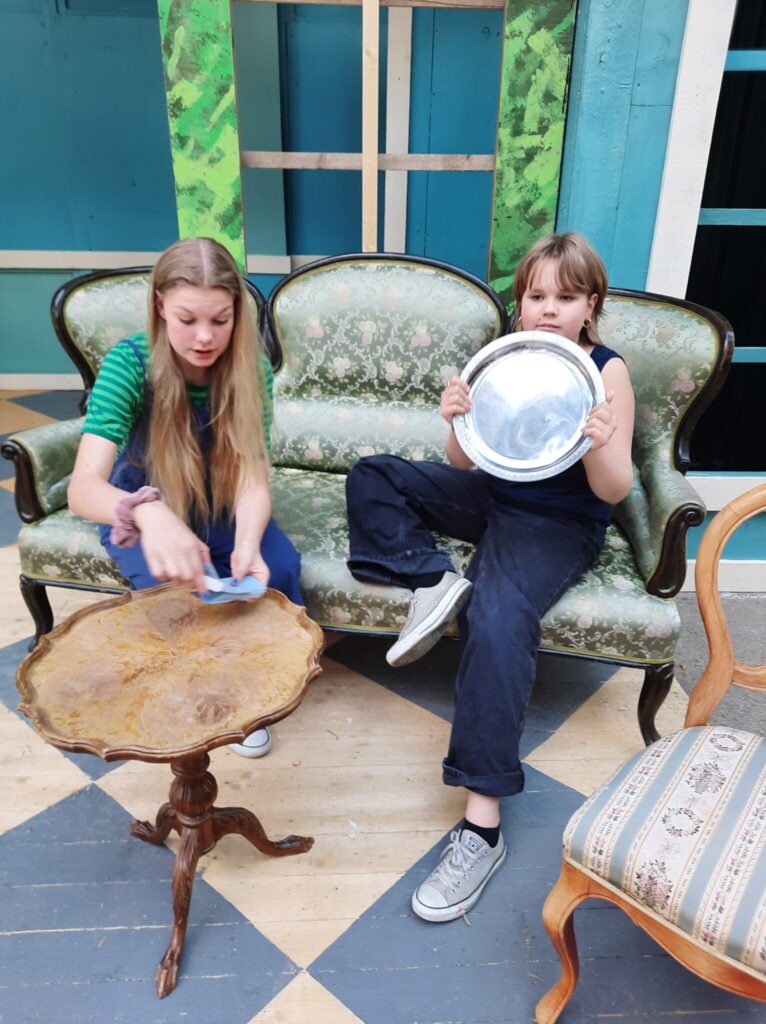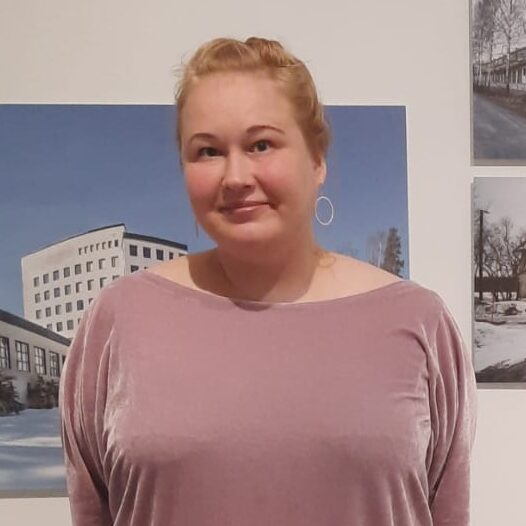Kanuuna’s Cultural Youth Work Discussion Group
Cultural youth work has been defined in a variety of ways. Sometimes the term is used to refer to high-quality programming for children and young people led by an expert in a particular field of art. The term can also refer to making culture accessible to young people, by contributing effort or funds. Cultural youth work also involves taking young people to concerts, to theatres, out into nature, to the beach, to the streets – anywhere they can build cultural capital, exchange ideas, learn, question, and engage with others.
Regional and local practices and development projects in cultural youth work are a pre-requisite for the development of the national body, write Schalin and Pyykkönen (2022:12) in their Finnish Youth Research Society article Nuorten kulttuuria tukemassa [Supporting the culture of young people]. National policies are valuable in themselves, but for young people it is more useful to see regional and local practitioners, because they can promote cultural youth work in a concrete way in the everyday lives of young people. This key idea is also apparent in the cultural youth work discussion group at the Municipal Youth Work Centre of Expertise Kanuuna. As planners, we explore what is happening in municipal youth work and share professional practices and ideas.
When I began, two years ago, as a planner with the Municipal Youth Work Centre of Expertise Kanuuna, my first responsibility was to join the cultural youth work special interest discussion group in Discord. I remember being extremely nervous – I was new to online discussion groups – but I quickly realised that I’d found my people. While cultural professionals are not, in my experience, a homogeneous group, I’ve found as a profession they tend to be warm and approachable. I remember that already then, as later, the conversation was by turns enthusiastic and nuanced. Over the years, the definition of cultural youth work has always been a topic of keen debate, never a source of conflict.

In spring 2021, the discussion group was led by Satu Olkkonen, postdoctoral researcher at the University of the Arts Helsinki. Her discussion style was productive and warm. When responsibility passed to me that autumn, I was determined to maintain the same calm and conversational approach. The first session in autumn 2021 was disappointing; not a single participant showed up. In Teams were Johanna Hurme from youth organisation Nuori Kulttuuri and guest Anu Utter who I had invited along to talk about using drama techniques in youth work. We did end up staying and chatting for the whole hour and a half. I feel in that session we laid the foundation for a collaboration between Kanuuna and Nuori Kultturi that led to our joint tenure organising the cultural youth work discussion group the following year.
In autumn 2021 and spring 2022, the discussion group met every two weeks and Nuori Kulttuuri planner Johanna Hurme and I attended each other’s events at every opportunity. During the year, we covered a variety of topics, from pop-up culture centres to creative movement for children. Invited guests included municipal officials, dancers, youth work practitioners, student activity co-ordinators, artists, bloggers, and programme directors. We invited guest speakers that participants wished to see, and often even a whisper of interest in a particular direction had me seize the idea. Participation grew steadily and my initial fears that no-one would come subsided. The discussion group began to establish its place. Over the two years we had wonderful moments: laughter and tears. The highlights were the moments in which we shared our experiences and were able to pass on approaches and ideas to each other and even develop new practices and collaborations. Sometimes the sessions became peer support, a space that allowed us to open up about the various challenging situations we encountered in cultural youth work.
In my experience, across many municipalities, youth workers do not always realise that they are doing is cultural youth work. They may feel – wrongly – that cultural youth work happens elsewhere and is somehow fancier and different, even though cultural youth work is what they are doing every day in their own work. This realisation came to me – as many wonderful insights do – the hard way. We can never separate our individual identity from our professional identity. We are the sum of what we have experienced, learned, and achieved. Youth workers may have previous occupations, pastimes, interests, and passions which they pass on to the young people they work with, whether or not they understand this as cultural youth work. And then there are youth workers who have been involved in dance their whole life and lead dance classes in a youth centre or artists who inspire children and young people with incredible crafts and handicraft. There are also countless youth workers who understand the value of cultural education and create opportunities for young people to engage with culture, by arranging band camps, locating training facilities, or taking them to the movies, the theatre, or an art exhibition.
As noted above, we are the product of our lives. We are what we engage with, what we build and what we remember. My beloved drama work always emphasises the individual’s wholeness and their ability to work with the resources they have. Drama is understood as a tool of theatre arts, a medium, above all, for asking questions rather than supplying ready-made answers (Ventola & Renlund, 2005). This is how I see the overarching idea of the cultural youth work discussion group, and this is also the reason it grew so popular in 2022-2023. We facilitators had a genuine interest in asking the questions and listening to the responses. It didn’t really matter that the sessions were online, the atmosphere remained mostly conversational, a space to engage. I feel that the round of introductions helped here: each of the participants had the chance to introduce themselves and share their news. We also had a Padlet where participants could introduce themselves and network.
Spring 2023 has been an interesting time from a cultural politics perspective. Political upheaval has been felt intensely in the cultural sector as well. A top Finnish politician of the moment, reflecting on the meaning of culture more broadly, has defended proposed national budget cuts with the justification that culture is a luxury which Finland cannot currently afford. In response, we could think: without culture, who would we be? Who would be keeping a record for future generations of who we are, what we feel, what we dream of and what we long for? Culture is our collective memory. We Finns remember where we were when Käärijä almost beat Swedish performer Loreen at Eurovision 2023. Käärijä is just an ordinary guy from Vantaa, yet behind him were countless arts professionals, polishing the diamond until it shone but not flawlessly. What a masterpiece it was: the product of countless hours devoted by backing singers, dancers, make-up artists, costume- and set-designers, each of whom were once inspired by someone to do something creative – perhaps by someone involved in cultural youth work who may not even be aware of the impact they have had.
As I write this article, I’m already working elsewhere. I’ve been at the art museum for a month now, surrounded by the works of artists of the Finnish golden age. Last thing yesterday, I stood in front of a Helene Schjerfbeck painting and smiled a wry smile. If someone had told her that culture was merely a luxury, would she have been dissuaded from becoming an artist? Perhaps not, but can we afford to take that risk? Cultural youth work is no more and no less than the intellectual and spiritual capital that we pass on to our children.

Author Ninni Parviainen is a Head of Library, Culture and Museum Services at City of Orimattila, former planner at Youth Work Centre of Expertise Kanuuna and head of theatre school Teatterikoulu Timotei.








